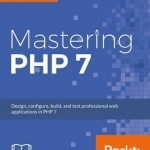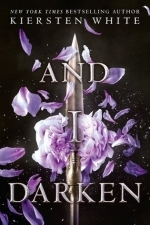In Search of Criminal Responsibility: Ideas, Interests, and Institutions
Book
What makes someone responsible for a crime and therefore liable to punishment under the criminal...

12 Week Body
Health & Fitness
App
I'm Beautiful Motives your personal lifestyle coach, I designed the 12 week Body programme for...

Think and Grow Rich by Napoleon Hill Summary Book
Book and Reference
App
All Purchases of this Audiobook Program Go To Supporting the Napoleon Hill Foundation ...

Comic Caption Meme Maker
Comics, Entertainment and Photo & Video
App
Transform your pictures into authentic looking comics! Add word balloons, stickers, and filters to...
Southern Today (21 KP) rated And I Darken (The Conqueror's Saga #1) in Books
Nov 7, 2017
Again, I did not like the voice of the reader for this novel. She was grating, could not do much variation of the voices and I wish she would not have tried, and was the reason I often considered stopping the track. And I have no idea how to spell any of the names without looking them up.
This novel, by Kiersten White, follows Lada and Radu, in the 1400s, in the Ottoman empire as insurances for the Sultan.
I wonder if, like many young adult series, this would have been better as a single book with the next being far in the future or following other characters during the same time frame.
If you enjoy war novels, historically-set novels, or stories of growing up in difficult circumstances will enjoy this.
Alright, SPOILERS BELOW, SPOILERS BELOW, PLEASE SCROLL FOR DISCUSSION there, that is out of the way.
So, this book covers a good lifetime, showing us the development, fully, of characters. Saw the gay man coming as soon as he was born, which is kind of sad. Why, why make the gay man beautiful? Why make it so obvious from the start?
Why have her fall in love with the future Sultan?
I wanted her, based on the description of the book, to be in her homeland more often than they are. The hatred between the siblings isn't what is odd, but what causes it. How Radu doesn't understand Lada's love towards him and what drives her. I do not understand it.
This book is also supposed to be a gender-bend of Dracula the Impaler. Which is interesting, because I did not figure that out from reading it. It is the correct time period, but gender bending DOESN'T WORK historically. I am sorry, it would be far to complicated to do that. It, it just doesn't work. You can write it and ponder what it would have been if one character was different. But not all. So, is that what this is?
I think I will be reading (or listening?) to the second book of this.
THIS VOICE IS TERRIBLE!
Alright, there. Little bits done
Addressing Brain Injury in Under-Resourced Settings: A Practical Guide to Community-Centred Approaches
Ross Balchin, Rudi Coetzer, Christian E. Salas and Janice H. Webster
Book
Many of the world's population have no access to appropriate diagnostic, neurorehabilitative or...

Sustainable Development of Organic Agriculture: Historical Perspectives
Book
This title includes a number of Open Access chapters. This important compilation presents an...

Extending SaltStack
Book
Extend the power of your infrastructure and applications with Salt modules About This Book * Get the...

Mastering PHP 7
Book
Design, configure, build, and test professional web applications in PHP 7 About This Book * Leverage...

The Garden Bible: Designing Your Perfect Outdoor Space
Michael Glassman and Barbara Ballinger
Book
A full-colour, richly illustrated and comprehensive guide on creating your own great garden, with...

